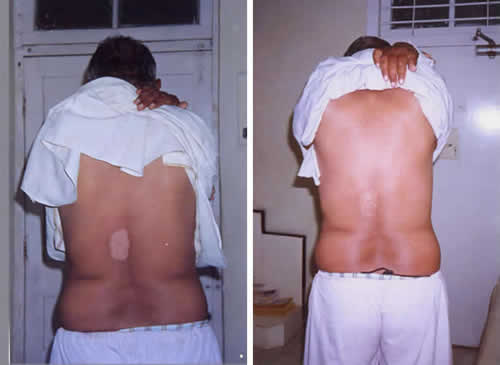Constipation
People denote many things when they state they have constipation. Sparse passing of stools, trouble in voiding, feeling of incomplete voiding are all reminiscent of constipation. The common suggestion range for bowel movements is varied. Some people have bowel movements 3 times a day; others, only one or two times a week.
Medically, constipation is defined as fewer than three bowel movements in a week. Constipation may be considered severe, when there is less than 1 bowel movement in a week.
Symptoms
Infrequent stools with no additional complaints are hardly ever abnormal. Women are more affected than men. The aged persons and children are though most prone to constipation.
- Hard, troubling to pass stools which need straining or manual removal with fingers - feel more than 25percent of times.
- Sensation of incomplete voidance.
- Stools infrequent, less than three times a week.
Other symptoms that a person with constipation may feel are:
- The abdomen might seem bloated, inflated or crampy.
- The bowel sounds may seem increased.
Causes
Many aspects contribute to development of constipation. Different people will have different set of causal factors.
- Inadequate fiber intake in diet.
- Chewing of food is not proper / eating in hurry.
- Decreased water intake.
- Several medications
- Iron supplements
- Tri-cyclic anti-depressants, Antidepressants
- Anti-convulsants
- Diuretics
- Stop cigarette smoking
- Abuse of laxatives.
- Medications containing aluminium and calcium.
- Endocrine disorders such as- under active thyroid.
- Any severe illness like paralysis, stroke.
- Major changes in life like pregnancy, traveling or old-age.
- Mental causes like depression and anxiety neurosis.
- Biochemical imbalance ' low potassium level in blood.
- Conditions that obstruct the normal passage of the stools within the intestines ' foreign bodies in intestines, strictures, adhesions, tumors, etc.
- Lead poisoning.
- Abdominal surgeries.
- Weaken pelvic floor muscles.
- Constipation can take place sometimes as part of a condition called 'irritable bowel syndrome' somewhere it alternates with diarrhea.
Diagnosis
An appropriate clinical history and physical examination usually be sufficient to diagnose constipation.
The occurrences of hard stools, difficulty in removing them and feeling of unfinished voiding of stools usually indicate the presence of constipation. Very hard, small, pellet-like stools which are eliminating with a lot of complexity certainly point to constipation even if stool occurs every day.
In severe constipation of long standing, a physical examination can disclose the occurrence of hard lumps over the abdominal surface.
Other tests that your doctor may advice are:
- Anorectal function
- Sigmoidoscopy or colonoscopy.
- Colorectal transit study
- Defecography
- Barium enema X-rays of the abdomen to detect the presence of any foreign bodies or other structural abnormalities within the intestines.
- Tests to rule out an under active thyroid.
Prevention
Constipation is a condition in which we can say – “Prevention is better than to cure.” Tackling the problem at its onset can prevent many years of discomfort and sufferings.
Tips to Prevent Constipation
- High fibres diet. 25 - 30 grams of daily intake may prevent constipation. Fibres help to retain water in the stools hence making them softer and easier to drive out.
- Whole grain cereals and breads
- Popcorn, nuts, and seeds
- Beans and legumes
- Dried fruits, such as prunes and raisins
- Raw fruits and vegetables
- Drink plenty of fluids, preferably water.
- Cut down on soft drinks and alcohols.
- Check your medicine closet.
- Don't curb your natural tendencies!
- Stop the regular use of laxatives and enemas.
- Exercise well
Homeopathic treatment for Constipation:
Homeopathy offers potential cure for constipation. Chronic constipation results from a variety of constitutional problems such as stress, altered sleep pattern, genetic predisposing, etc. Homeopathy offers treatment which is based on the patient's individual case pattern. Homeopathy is strongly suggested for all cases of constipation.
Homeopathic treatment for constipation is stand on the treatment of internal causes leading to development of constipation. Most cases of constipation may not need medicine but some lifestyle and food changes.
The homeopathic medicines for constipation have a distinction over the purgatives by it not being habit-forming. Most of the purgatives are habit forming, doing more harm at the end, on stopping it. Homeopathic medicines are NOT habit forming, as they are actually not purgatives.
The Root Cause of Autoimmune Disease
It is our mission to provide each patient the best care in a kind, honest and compassionate manner.”











